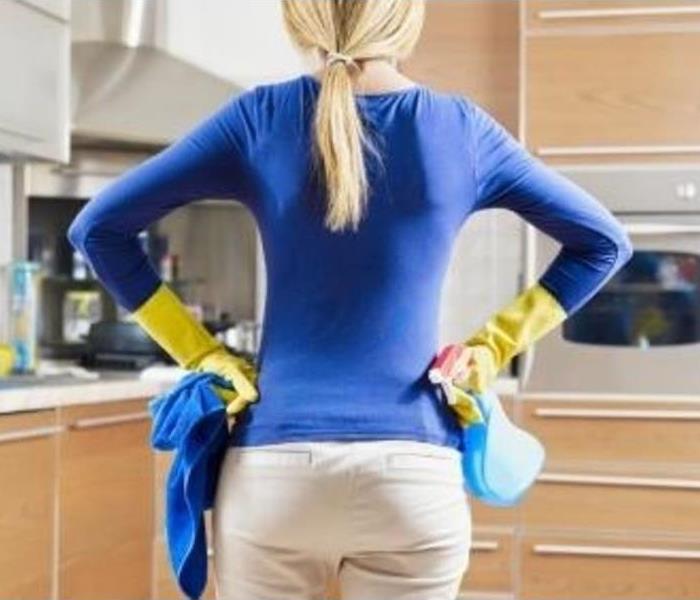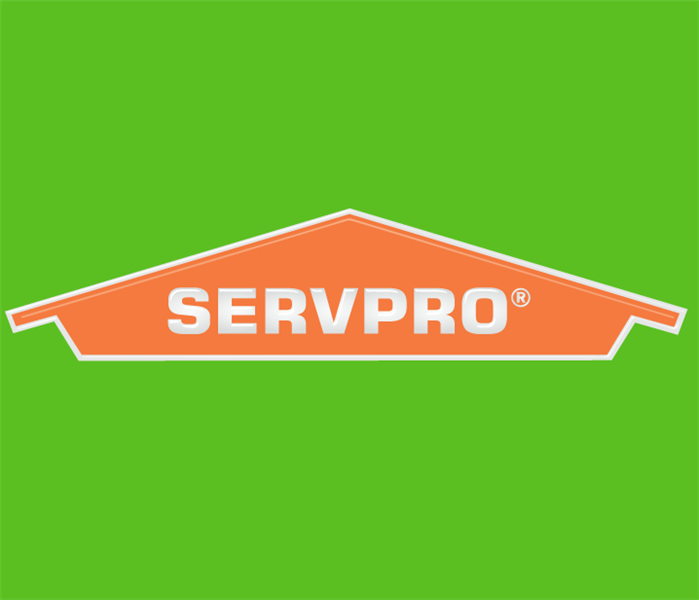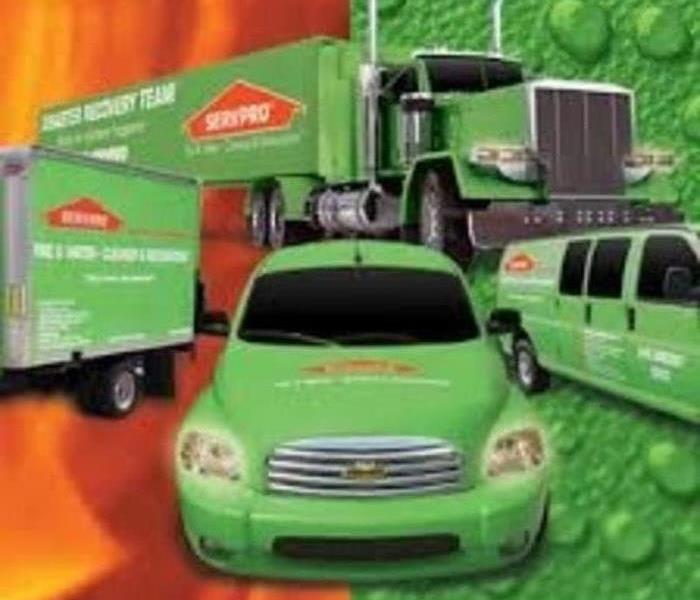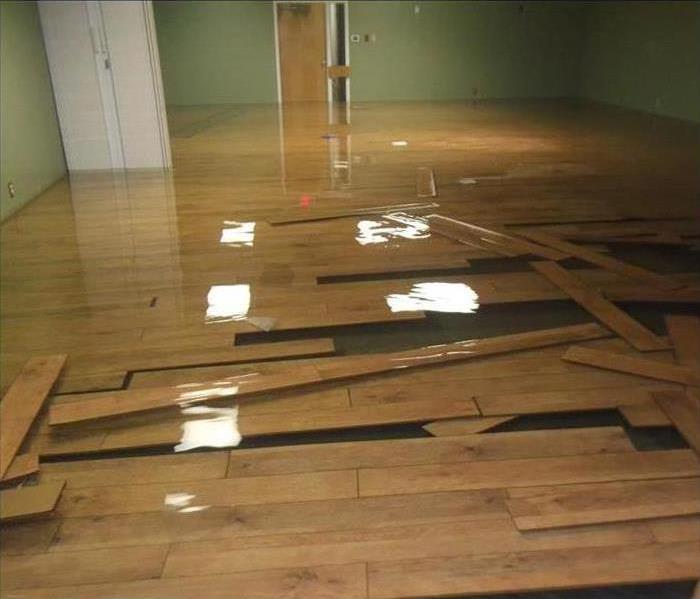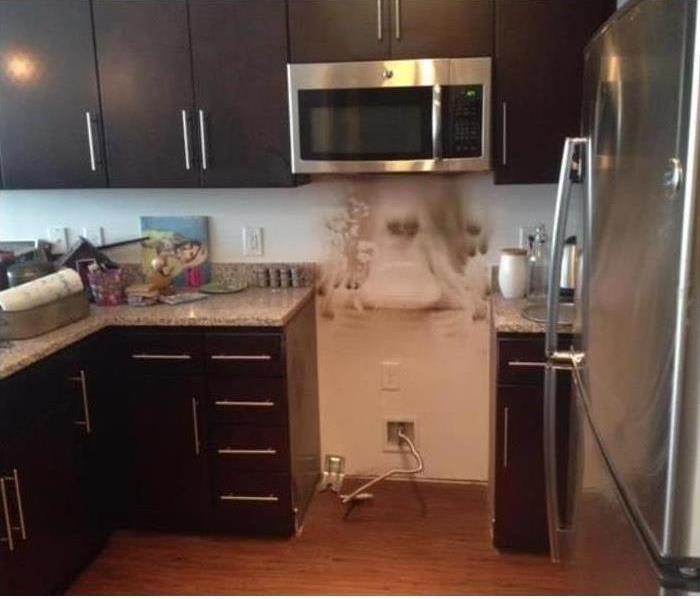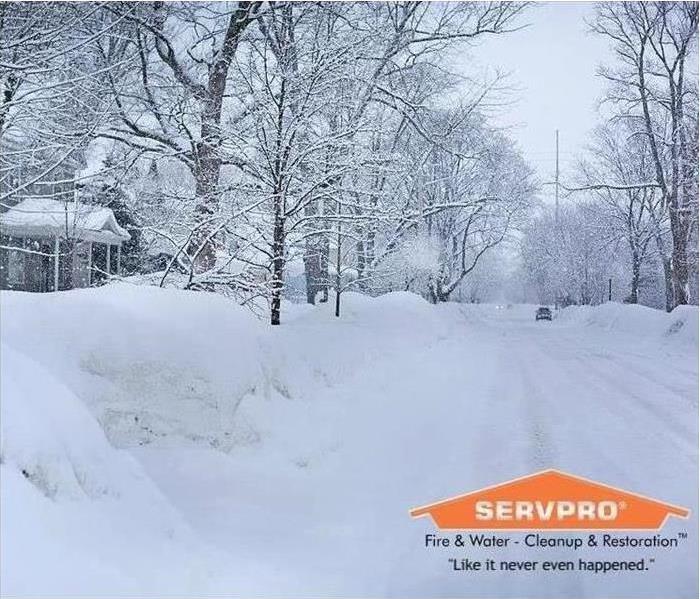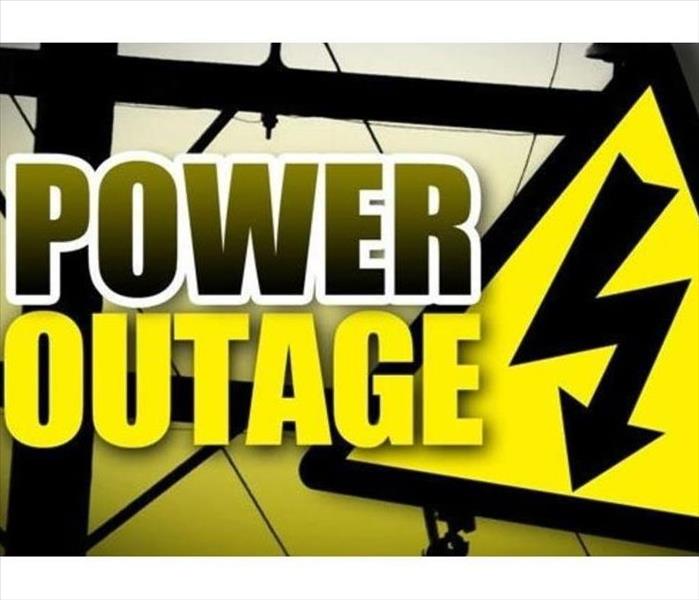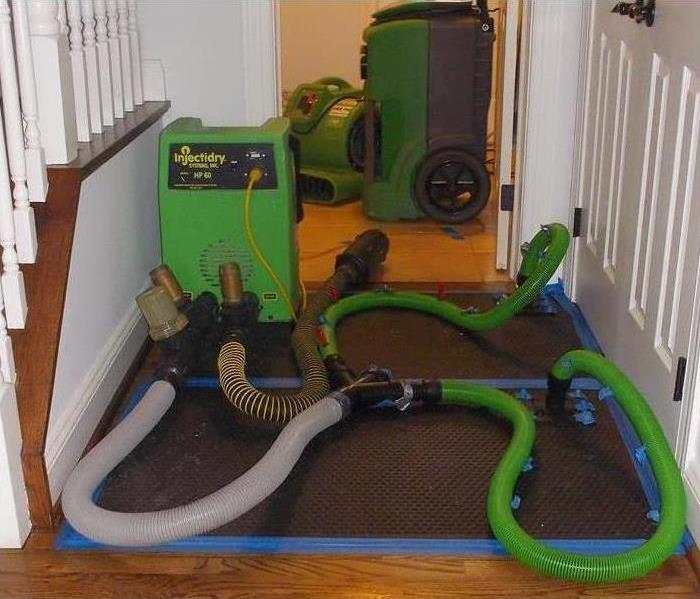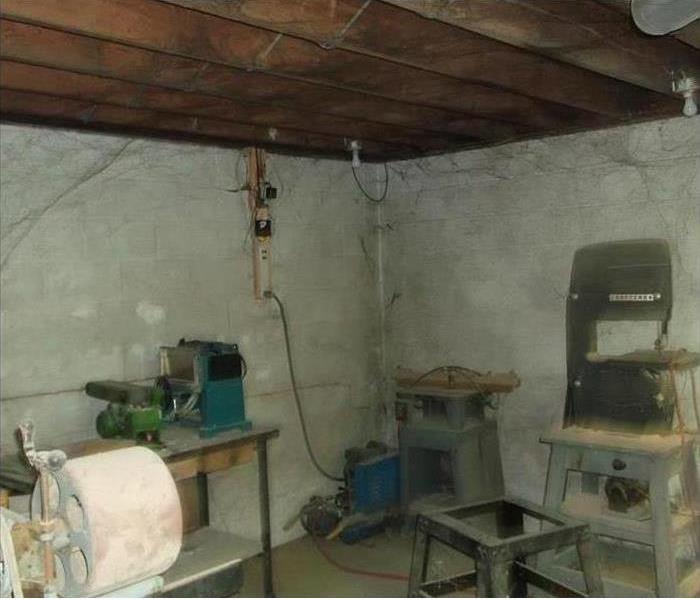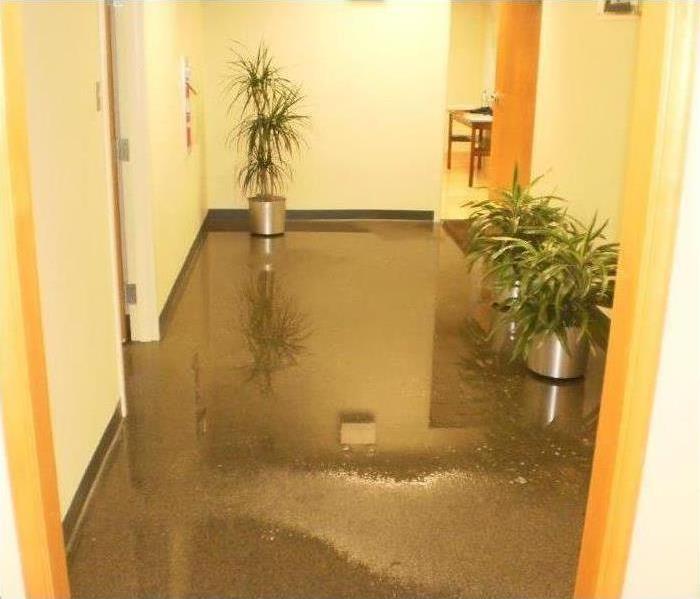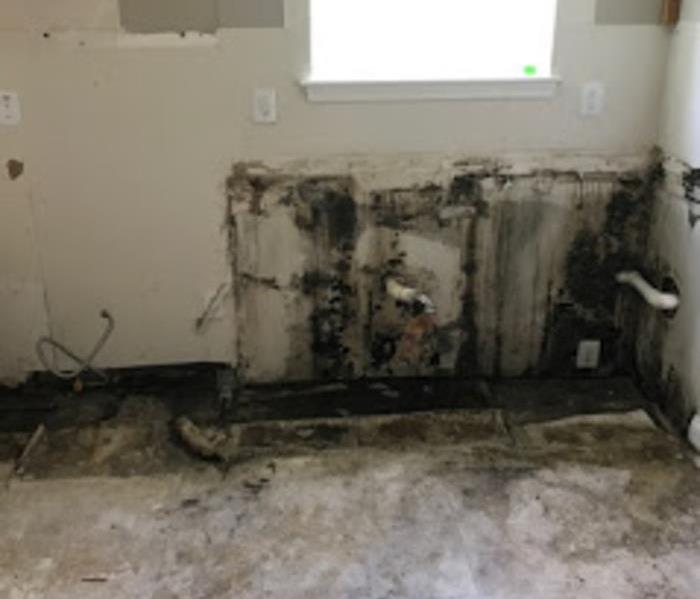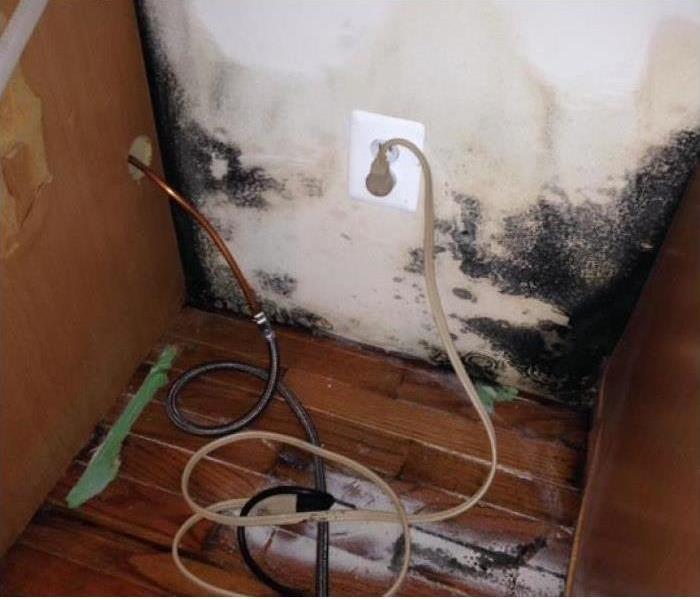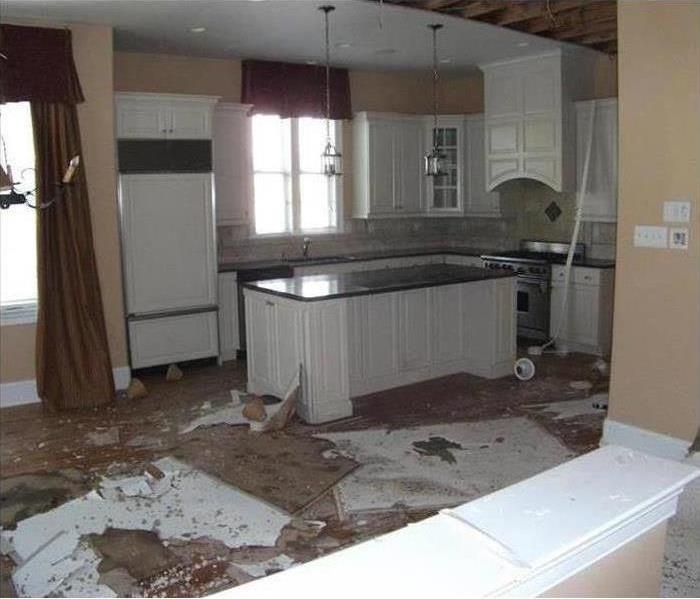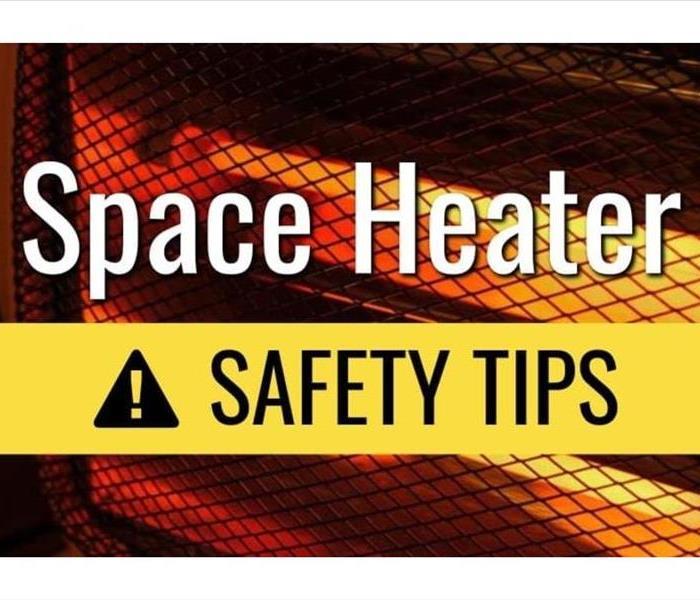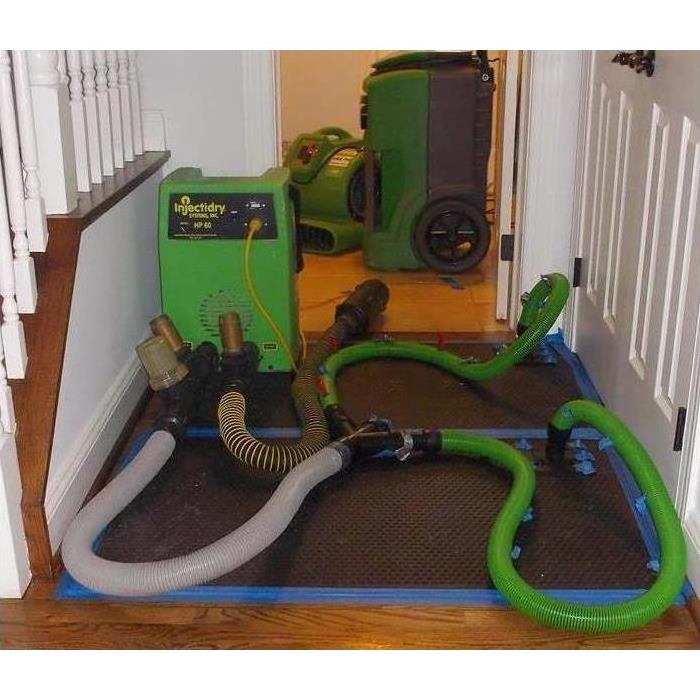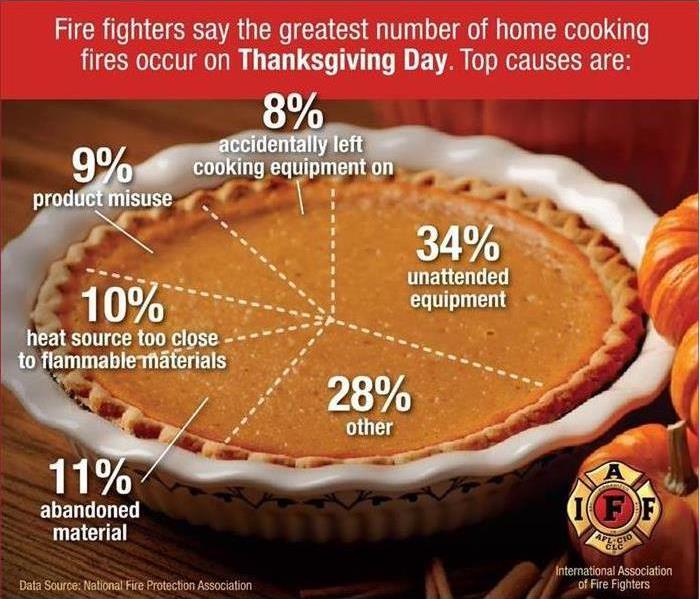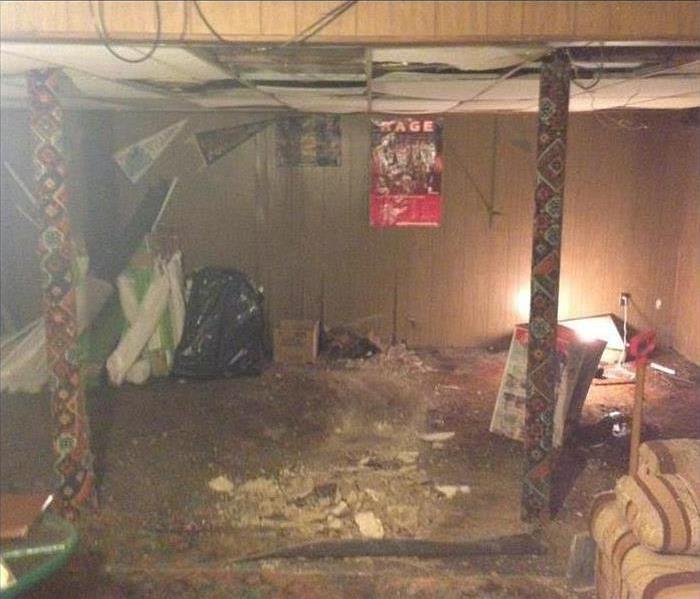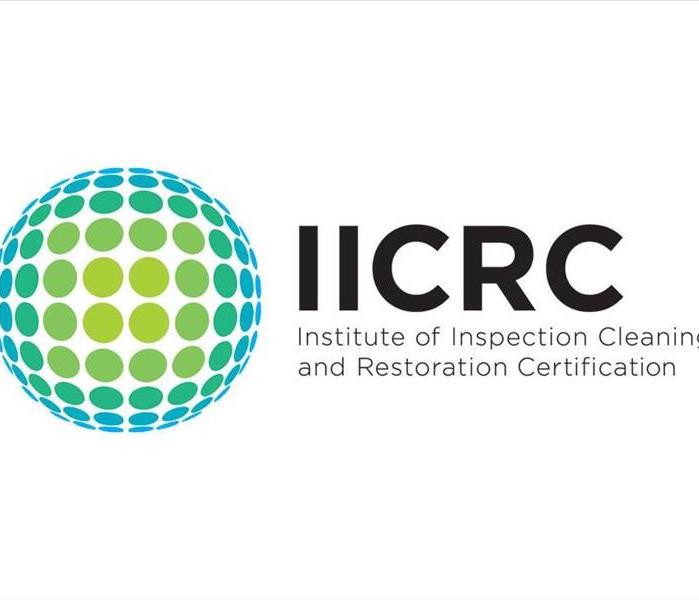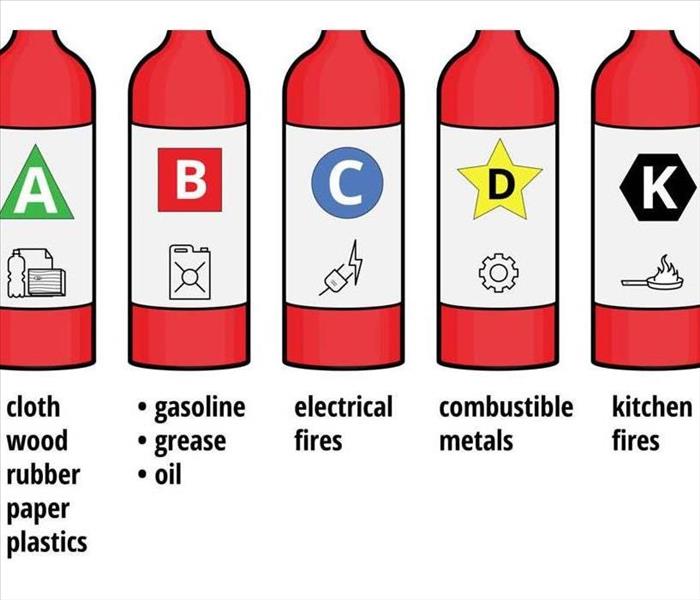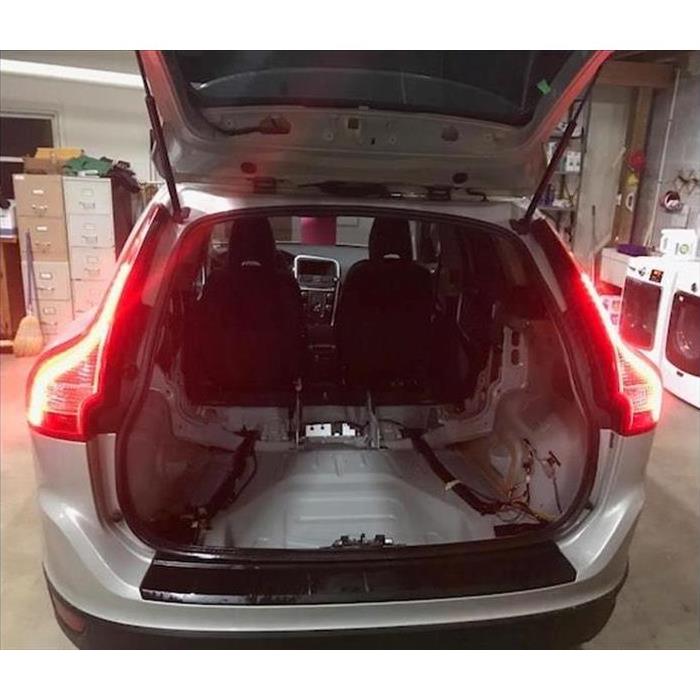Archived Blog Posts
Red Cross Month
3/3/2020 (Permalink)
Each year since 1943, during the month of March the President of the United States proclaims March to be “Red Cross Month.” March is a month that provides the Red Cross a chance to bring recognition to the work that they do and bring awareness to their many volunteering and donation opportunities. This opportunity is designed to encourage bringing out ones inner hero by promoting donating to the organization, giving blood, taking an educational class, or even volunteering opportunities. The overall goal of promoting March as a month of change is to bring awareness to your local community and bringing change to the lives of those around you.
Listed below are direct links to The Red Cross Website:
Donation:
https://www.redcross.org/donate/donation.html/
Blood Donation:
https://www.redcrossblood.org/
Training Programs:
https://www.redcross.org/take-a-class
Volunteering Opportunities:
https://www.redcross.org/volunteer/become-a-volunteer.html
Does Bleach Kill Mold?
2/18/2020 (Permalink)
Clorox Bleach is a very well known bleach and has several uses through out a household. Listed below are some facts about the bleach to better understand its uses.
- Clorox Bleach is more useful for killing bacteria and viruses than for killing molds, parasites, and spores. The bleach kills the kinds of microorganisms found in sewer water, but it is not as lethal to any kind of microbe that travels through air.
- Clorox Bleach doesn't kill mold effectively at temperatures below 52 degrees F. Some species of mold, however, continue to grow even when the temperature is slightly below freezing.
- By the time you have black, inky blobs of mold, it's too late for Clorox. The active chemical in bleach does not break up the bio-film that glues mold into patches.
- Mixing Clorox with contaminated water greatly reduces its effectiveness for disinfecting walls, floors, and household surfaces. Any kind of formerly living matter in water can bind to Clorox so it can't disinfect anything else. It's important to mix Clorox with clean water.
- Clorox is more effective for disinfecting indoor surfaces than for disinfecting outdoor surfaces. Sunlight breaks down the active chemical that kills bacteria, viruses, and mold.
Emergency Supply Kit
2/17/2020 (Permalink)
In the event that a storm has occurred and your home has lost power, it is important to have a basic emergency supply kit that can be made quickly. It is vital to be prepared and have your own food, water, and additional supplies in enough quantity to last for at least 72 hours.
Kit:
- A three day supply of non-perishable food items.
- A gallon of water per person per day for drinking and sanitation purposes (overall amount depends on how many people are in the home).
- A flashlight or two with extra batteries.
- Backup battery packs for electronics or cellphones.
- Extra blankets and clothing to fit the weather’s needs.
- A first aid kit.
- Fun games and activities to keep your time occupied until the power is back on.
The History Behind SERVPRO
2/11/2020 (Permalink)
In the beginning of 1967, SERVPRO was started as a painting and contracting type business where they first established the recognizable green and orange logos. Around 1969 SERVPRO then launched into franchising as a cleaning business. Years later in 1980, SERVPRO received its first ranking in the Entrepreneur Magazine’s Franchise 500, coming in at #103. With keeping their business in mind in 1988, SERVPRO relocated its corporate headquarters from Sacramento, California to Gallatin, Tennessee to place itself within 600 miles of 50 percent of the United States population. At the time of the relocation, SERVPRO consisted of 647 franchises. By the year 2003, SERVPRO began its streak with being ranked #1 in the Restoration Services category and years later in 2017 SERVPRO celebrated its 50th anniversary as a company. At this point in time, SERVPRO has over 1500 franchises in the United States and Canada that provide exponential service. Here at SERVPRO of The Main Line we specialize in cleanup and restoration services to make your fire, smoke, water, or mold damage “Like it never even happened.”
How to Prepare your Home for Storms
2/10/2020 (Permalink)
Getting your home prepared before a heavy rain storm or for the potential hurricane/ tropical storm is important for all homeowners to do. In the case of a storm, heavy rains can cause flooding and heavy winds can cause branches to break off trees or for objects outside a home such as furniture or flower pots to move around and cause damage to the property.
Prepare your home:
- Check your roof regularly to make sure that there are no loose shingles or leaks to ensure that it is in good condition.
- It is important to keep your homes gutters, downspouts, and drains free and clear of leaves and debris.
- Be sure to remove branches that are close to the home.
- Loose items around the home such as furniture, plant pots, or decorations need to be secured safely or brought inside.
Why SERVPRO of The Main Line
2/6/2020 (Permalink)
Here, at SERVPRO of the Main Line, we pride ourselves on our work ethic everyday on the job. As a company we make sure that every technician is well equipped with customer service and professionalism when they are dealing with a job. In addition to excellent service, our technicians are certified in water mitigation, mold remediation, fire restoration, and even pack outs and carpet cleaning. As a franchise we are independently owned, but are backed by the 1700 other franchise all over The United States if we are ever in need of more helping hands. SERVPRO of The Main Line is also able to provide help in the event of a storm cleanup such as flooding, a hurricane, or a cleanup after a tornado. Our goal is to have happy customers who are happy with the services that we have provided!
Commercial Cleaning
2/5/2020 (Permalink)
Most businesses don’t have the time to worry about the common wear and tear that gradually soils their offices. When grime, odor, and moisture challenges go beyond the scope of your regular cleaning staff that’s when you call SERVPRO of the Main Line. SERVPRO is available whether it is to remove an odor problem or deep cleaning flooring or carpets, you can CALL US AT (610)-640-9533.
SERVPRO of The Main line offers cleaning services ranging from cleaning carpets to removing bio hazard contaminants. We have specialized technicians that are trained to use the proper products and techniques to get your property or business back up and running. We specialize in the following:
Have Questions? Call Us today at (610) 640-9533
Why Are SERVPRO Trucks Green?
2/4/2020 (Permalink)
SERVPRO of the Main Line is a recognizable company for several reasons, their great services, their adaptability to situations, and most importantly their green work trucks. At the beginning of SERVPRO the colors green and orange were chosen to be the colors that best fit SERVPRO as a business. In the 1970's, the owners of SERVPRO wanted to find the most eye-catching and recognizable color green for their equipment and vehicles. A sample paint chart was used to identify the perfect green color and was shown to as many people as would give an answer to which green they prefer. The owners asked the participants “what color on the chart would be impossible to not recognize?” In reference to the color used on a Porsche 911 automobile, the 1970 rally green was the winning color.
Flooded Basement in a Commercial property
2/4/2020 (Permalink)
A water main broke in a vacant commercial property causing an unbelievable amount of water to enter the basement of the property. That’s when SERVPRO of The Main Line was called to save the day. At SERVPRO We specialize in 24 hour emergency service for water and fire damage. In the basement of this property, we pumped out over 10,000 gallons of water! And that was only the first step in the restoration process. The flooring and drywall were then removed; the contents in the area were moved out, documents hung to be dry, and equipment was set up. Specialized air movers/fans and dehumidifiers were used to draw the remaining moisture out of the basement. From start to finish the job took 3 days and 1 very long night.
Kitchen Fires Can Involve More than Just Smoke Cleanup
2/4/2020 (Permalink)
Having a fire extinguisher is a must for kitchen safety. A small stove fire can usually be put out with a few quick bursts under the correct situation. A quick response can minimize the smoke damage and limit the damage to the immediate area around the stove. However, the fire extinguisher powder doesn’t limit itself to just the immediate area around the stove. The powder travels, and can get everywhere!
In this case the smoke damage was limited to the kitchen but the powder traveled throughout the apartment. The powder was found embedded in the carpets, on the window treatments, on all horizontal surfaces, and even within the HVAC system. The powder clean-up involves using HEPA vacuums in conjunction with air scrubbers to capture all the powder and not just spread it around. This type of cleaning is done in a methodically way starting from the ceiling and working our way to the floor, even though we usually pre-clean the floor first. After all powder is removed from the home, then the smoke cleaning and restoration process can begin.
If you need emergency clean-up or have any questions on fire damage restoration, call SERVPRO of the Main Line 24/7 at 610-640-9533.
Winter Weather Terms
2/4/2020 (Permalink)
Winter Weather Advisory: You can expect winter weather conditions. These conditions can cause everything to slow down and can be a real inconvenience. These can also produce life-threatening hazards.
Frost/Freeze Warning: You can expect below-freezing temperatures. Be prepared to allow extra time when traveling. Prepare your home and water pipes with insulation. Protect outdoor plants by covering them or moving them indoors. Make sure any pets have adequate shelter or the ability to come inside.
Winter Storm Watch: You should be alert and prepared; a winter storm is likely in your area.
Winter Storm Warning: You need to take immediate action, a winter storm is in your area or will be entering your area soon.
Blizzard Warning: Seek warm shelter immediately! Heavy snow and strong winds are forecast. Near-zero visibility, heavy snow, deep snowdrifts, and life-threatening wind chill are very likely.
For any winter storm damage that may occur, remember SERVPRO of The Main Line at (610) 640-9533
What to do When the Power Goes Out
1/30/2020 (Permalink)
There are several reason that a home’s power could go out, a crazy rain or snow storm came through and took down wires or a transformer and in that event here are some tips to follow:
- Investigate why the power has gone out. Is it a fuse or the breaker? If it is not that, it could be a power outage in the neighborhood in which case call the power company to report the outage. If you are unable to get through right away be patient other might be calling to report the same issue.
- Unplug all appliances in the event that the power comes back on and the power creates a surge that could short your appliances and electronics that are plugged in.
- Be sure to keep your refrigerator and freezer doors closed. A refrigerator can stay cool for four hours without power and a freezer will last up to 24 hours before the food is fully thawed.
- If your power has been out for a period of time and it is cool outside, keep doors to rooms closed and find a centralized location for everyone in the home to stay to keep the warmth.
1-4-8 Response Time
1/28/2020 (Permalink)
SERVPRO as a brand is unique for several reasons one on them being the 1-4-8 service response guideline that the franchises follow. This guideline allows for a quick and accurate response times that has been put in place to help minimizes a property owners loss expenses.
1 – Within in one hour from the notice of loss, a SERVPRO franchise will contact the customer to arrange for services to be done.
4 – Within the four hour window from the notice of the loss, a SERVPRO Franchise Professional is on-site ready to start mitigation services even after hours if it is necessary.
8 – Within eight hours from the notice of the loss, a SERVPRO professional will contact the appropriate party being the property owner or the insurance adjuster whomever is responsible for the billing and will give them a briefing on the situation and what is going to happen next.
*NOTE not all situations and conditions are going to follow under the 1-4-8 guideline, but just know that as a SERVPRO franchise, we pride ourselves in our ability to adapt and meet the needs of customers in a timely manner.
Specialized Equipment for Drying Hardwood Floors
1/14/2020 (Permalink)
When hardwood flooring gets wet during a water damage it can cause serious problems. Even if the water is cleaned up from the surface immediately, the water may have already penetrated the flooring. Water travels under the floor boards which causes them to swell and buckle. It usually takes around 48 hours for signs of visible damage and in most cases this damage is irreversible which means the floor will require replacement.
That’s where SERVPRO of The Main Line comes in. We have specialized floor drying equipment specifically for this problem. It’s called a “Trapped Moisture Ventilation System” or hardwood floor drying system. The system works by placing plastic mats on the wet flooring and using suction to draw out the moisture. The drying process typically takes 3 days to return the moisture content of the floor to normal and in most cases, re-finishing is not required!
When it comes to wet hardwood flooring, time is of the essence. The sooner the drying process begins the better the end result. With 24 hour emergency service we can be on-site within 4 hours to begin the drying process.
Long Term Water Damage Causes Little Puddle on Kitchen Floor but Big Problems in Crawlspace
1/14/2020 (Permalink)
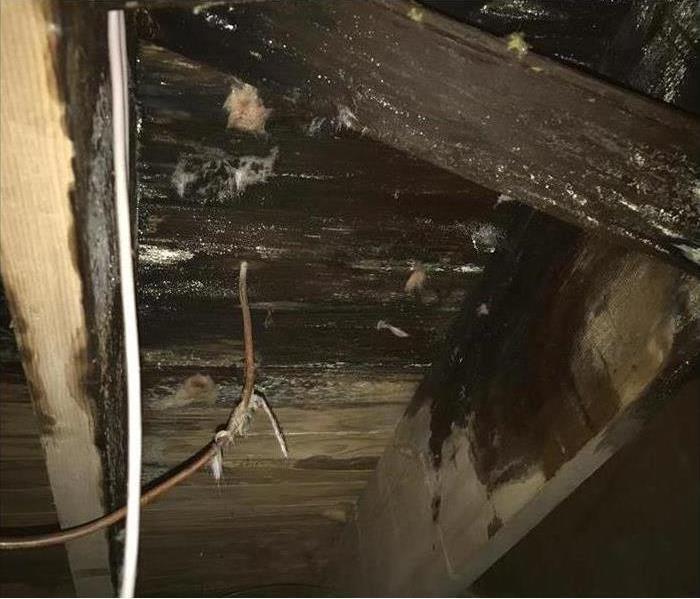 Hidden subfloor damage under insulation in crawlspace
Hidden subfloor damage under insulation in crawlspace
Many of us rarely use our crawlspaces so when there is a problem it can go undetected for a very long period of time. In this case the homeowners noticed a small puddle on their kitchen floor several days in a row. The homeowners simply cleaned up the puddle everyday and thought their refrigerator was on its last legs. The couple eventually called their appliance repair company and they came out to investigate the situation further. They determined that the refrigerator had been leaking and the majority of the water was ending up in the crawlspace. That’s when SERVPRO of The Main Line was called in and was able to take a closer look to see that the entire crawlspace floor was covered in water.
Smoke webs?
1/14/2020 (Permalink)
Furnace puff backs can be one of the most heavily involved types of jobs that we perform here at SERVPRO. Smoke and soot can find its way into all nooks and a cranny of your home, stain fabrics and painted surfaces, and embeds itself into your carpets and flooring.
One common misconception however is that is reveals the deficiencies in your home cleaning. One of the cardinal features of a puff-back is “webs” in the corners of your walls and ceilings and doorways. Customers always feel that they are cobwebs that have been blackened by the soot but they are actually carbon chains formed from the soot. Since a puff-back is a sudden burst of soot from your furnace it puts a lot of soot (carbon) into the air in a short time window. This carbon collides with one another and forms chains which just happen to look like cobwebs.
Smoke and soot cleaning should always be done by a professional to minimize the damage and fully remove the smoke and soot. Incorrect cleaning methods could result in smearing, streaking, and having to paint or replace items that may not have needed to be. SERVPRO uses specialized cleaning agents and equipment to get your home back up and running as soon as possible with a minimal disturbance to you.
Rapid response can mean the difference between restore vs. replace
1/14/2020 (Permalink)
The first few hours after a commercial water damage can be the most vital. Rapid response will many times be the determining factoring between restoring and replacing. The photo captioned is what the employees of this office building saw when they came into work one morning. A quick call to SERVPRO of The Main Line and a crew was on their way. Clean up began with extraction of carpets. Other crew members moved and blocked contents. Even more crew members removed the vinyl cove base and drill holes in the lower drywall to allow airflow to more efficiently dry the walls. Holes are always punched below the trim line to allow for the new trim to cover the holes. Drying equipment was set up by a manager as he walked through to ensure nothing was overlooked and properly document the job for the insurance company. The SERVPRO team came in like a wave, just as the water did a few hours before.
Job timeline:
- The water damage was discovered on a Friday morning at 6:00 AM.
- The crew arrived at 7:45 AM.
- The work was completed by Friday evening at 6:30 PM.
- Crew returned Saturday and Sunday to take moisture readings and re position drying equipment for optimal drying.
- Crew arrived 6:00 AM Monday to install new cove base and remove equipment.
- By Monday 9:00 AM, the property was put back together and it was business as usual for this company. Employees that had off that Friday never even knew anything had happened!
If you have a water damage in your commercial property, remember that a quick response from SERVPRO of The Main Line can make the difference from a inconvenient weekend to weeks of construction and loss of use. Call us today to help make it "Like it never even happened."
Winterizing Tips to Prevent Mold
1/8/2020 (Permalink)
The wet season in the winter months is one of the best times of year for molds to grow and expand. Many times mold is contained near sources of water where it can easily grow and reproduce. As it grows, mold can break down and compromise the integrity and strength of the source in which it lives.
Mold can be killed, but if it is not removed properly, it can remain in the area just cleaned and the dry spores can be released into the air. Prevention is key to keep your health from being affected by mold and homes and buildings strong.
Here are some winter weatherizing tips to keep at bay:
- Keep all areas clean - mold feeds on dust
- Make sure all seals on windows and doors are not compromised and in good working condition
- Clean and repair roof gutters regularly
- If there are freezing temperatures, take measures to insulate pipes inside and out to ensure they will not crack and/or burst.
The two most important things to remember when trying to prevent mold growth are - keep everything clean and keep everything dry.
Kitchen Mold
1/7/2020 (Permalink)
A kitchen remodel turned south after a homeowner’s contractor removed their kitchen cabinets. Once removed, it was clear to see that the kitchen sink had been leaking for a period of time which allowed for the mold to grow into such a large area. In addition to the dry wall needing replaced, the tile flooring and sub flooring needed to be repaired and replace to ensure that the mold growth was contained. The kitchen was then cleaned and sanitized to confirm that this mold issue was cleared for the rest of the kitchen to be completed. New plumbing was added around the sink area for the cabinets and flooring to be installed without a worry of the leak returning. The kitchen remodel was completed and all signs of mold are gone.
Do’s and Don’ts for Fire and Smoke Damage
12/30/2019 (Permalink)
DO
- Limit movement in the home to prevent soot particles from being embedded into upholstery and carpets.
- Keep hands clean. Soot on hands can further cross contaminate an otherwise unaffected area.
- Call SERVPRO of Central Chester County and The Main Line.
DON’T
- Attempt to wash any walls or painted surfaces without first contacting our office
- Attempt to shampoo carpet or upholstered furniture.
- Attempt to clean any electrical appliances, TV sets, computers etc. that may have been close to fire, heat or water without first consulting an authorized repair service.
- Use any canned or packaged food or beverages that may have been stored close to fire, heat or water.
- Turn on ceiling fixtures if ceiling is wet. Wiring may be damaged or wet.
- Send garments to ordinary dry cleaner. Improper cleaning may set smoke odor.
10 Bathroom Water Damage Facts We Bet You Didn’t Know
12/18/2019 (Permalink)
Ever wonder what can be lurking in your toilet? Or where all of that water went when your sink overflowed? What could be growing behind the walls? Keep reading to learn some interesting bathroom facts you probably didn't know.
- Did you know that the bathroom is THE most susceptible location for water damage in your entire house? There are so many little bits of information and facts you may not know that could possibly save your bathroom from potential water damage. Read on below for nine more bathroom water damage tidbits we bet you didn’t know, but would love to find out!
- Invisible plumbing problems such as clogged drains can stop your bathtub and shower from completely drying after usage, and can signal severe problems underneath the bathtub. To prevent further bathroom water damage, these inconspicuous plumbing troubles should be inspected by a professional as soon as possible.
- The toilet is one of the household fixtures that can cause the majority of bathroom water damage in the home. Never ignore any water found around the toilet. The toilet lines should constantly be check for leaks, and the toilet rims, seats, and the toilet tank should be regularly checked as well. Also inspect the seal of the toilet. If the seal does not work anymore, there will be leakage from the toilet, causing disastrous bathroom water damage.
- If the bathroom floor is soft, damage may already be in the process of occurring.
- The exhaust fan is an essential bathroom asset for the maintenance of low humidity levels. Assisting to keep the area dry and ventilated, the exhaust fan is an added security against the destruction that bathroom water damage causes. Be sure to turn on the fan during and following a warm/hot shower or bath to prevent moisture accumulation. Routine cleaning and inspection can ensure that your exhaust fan is always operating properly. It is suggested to wire the fan to automatically function when the bathroom is used.
- Hanging deodorants in the toilet bowl can increase the chances of a clog, especially in low-flow toilets. Skip the fancy deodorizers if you want to keep your bowl clog-free and lessen your chances of bathroom water damage.
- Blisters along caulked areas, or discolored floor stains can suggest water leakage. Although these blemishes may seem small to the naked eye, do not underestimate the extent of the water damage in your bathroom. Just a tiny leak can be a sign of a enormous problem on pipes and drains that are not exposed and cannot be seen. Furthermore, the water that penetrates into the floor encourages growth of mold, fungi, and other microorganisms that feed on the wood, causing more bathroom water damage.
- Did you know that these microorganisms flourish in temperatures between 40 and 100 degrees? That is the typical temperature of most bathrooms, making the overall damage horrendous.
- If the humidity in your bathroom is high, generally more than 55 percent, you have a possible mold problem. Check for water on pipes because it can also suggests a mold situation and water damage. A musty odor also signals mold, and should be followed up with an inspection. The presence of mold cannot only lead to damage to your bathroom, but health issues as well.
- Sinks and cabinets are constantly exposed to humidity and moisture, but are often ignored by homeowners searching for bathroom water damage. However, these are two fixtures that are known to conceal damage. You should regularly inspect under sinks and cabinets. A slow draining pipe underneath the sink suggests a clogged drain. If you see a loose or cracked drain seal, replace it immediately.
Dishwasher problems in Malvern
12/18/2019 (Permalink)
A dishwasher leak can go unnoticed for a long time; in this case it was about 6 months. When the plumber arrived to pull out the dishwasher this is what he found. An unknown amount of mold growth behind the dishwasher and the adjacent cabinets.
SERVPRO of The Main Line was then called in to address the situation. Every mold job is first scoped by an experienced project manager to determine the best course of action for remediation that will create the smallest disturbance to the daily lives of the residents. In this case, part of the kitchen had to be removed to address the mold in full.
A full containment barrier with negative air pressure was setup to prevent mold spores from traveling into different parts of the home; granite counter tops were removed (without breaking); cabinets were unscrewed and set in the garage for safe keeping; all moldy drywall, insulation, and flooring were removed. The entire area was thoroughly cleaned by HEPA vacuuming and wet cleaning with anti-microbial. Job is ready for the repair team!
Ceiling collapse in Wayne
12/18/2019 (Permalink)
When you come home from vacation the last thing you feel like doing is unpacking, let alone cleaning your kitchen ceiling up off the floor. If a water leak starts when no one is home to shut it off, the damage can get extensive. This picture shows a home after the owners took a weekend trip to the shore. They returned to find a toilet on the second floor was clogged and kept running once they left. The water went through the bathroom floor and into the kitchen ceiling causing the collapse. SERVPRO of The Main Line offers 24 hour emergency service for fire and water damage. Our crew went out that night to start the cleaning and drying process. Situations like this can be traumatizing but once the SERVPRO crew arrives, the customers mind is put at ease.
Fire Restorations Procedures
12/17/2019 (Permalink)
Listed below are the various fire restoration services that SERVPRO of The Main Line has to offer. Each fire damage to a home or commercial property is going to be handled differently and the restoration needs for each job is dependent on the initial damage to the property. SERVPRO offers several services that can be broken down and described in five categories.
Mitigation Services:
The goal of mitigation is to secure the structure and prevent further damage to the property. Mitigation could include boarding up openings to secure the structure, winterizing the plumbing to prevent frozen pipes, and establishing a temporary source of electricity to the structure. Structures that are wet due to fire-fighting procedures will need emergency drying to prevent secondary water damage to the affected area.
Structural Cleaning Services:
The initial cleaning of a fire-damaged structure focuses on the removal of smoke residues from a building’s structural components and deodorizing odors given off by these residues. SERVPRO then advises the property owner on which structural components can be cleaned and which cannot be cleaned. Repair or replacement is needed for components that do not respond to cleaning.
Contents Cleaning Services:
Personal property within a residence, office, or commercial building must be cleaned of smoke residues. In some fire situations, the contents can be cleaned on the job site. Other situations require contents to be packed and moved to a separate location for cleaning and storage. Pack-outs could occur because a building is not secure or is too damaged for on-site cleaning.
Specialty Restoration Services:
Restorers of contents often subcontract specialty cleaning of certain contents: electronics cleaning, dry cleaning of clothing, furniture refinishing, and cleaning of expensive artwork.
Reconstruction Services:
In some fire situations, structural components may be damaged to the point they cannot be restored to preloss conditions. The work of reconstructing and repairing fire-damaged structural components may require different skills than those of standard home remodeling. Fire damage restorers typically perform cleaning services while licensed general contractors provide reconstruction services.
Home Heating Safety
12/3/2019 (Permalink)
Throughout the winter months keeping a home warm is vital for homeowners. During the months of December, January, and February home heating fires are at a higher risk of occurring because of candle fires, electrical issues, and heating equipment. Stay safe and warm with some fire prevention tips below.
- Keep anything that can burn at least three feet away from a heating source such as a fireplace, wood stove, or a portable space heater.
- Never us an oven to heat your home.
- Remember to turn portable heaters off when leaving the home or going to bed.
- Make sure to have chimneys and heating equipment cleaned and inspected every year by a qualified professional.
- Test smoke and carbon monoxide detectors at least once every three months to ensure that they are working properly.
My hardwood Floors have gotten wet! Help!
11/21/2019 (Permalink)
Some of the most frantic calls we receive are when someone’s hardwood floors get wet during a water damage. Even if the water is immediately cleaned up from the surface, the water may have already penetrated the flooring. Water travels under the floor boards which causes the boards to swell and buckle. It usually takes around 48 hours for signs of visible damage and in most cases this damage is irreversible which means the floor will require replacement.
That’s where SERVPRO of The Main Line comes in. We have specialized floor drying equipment specifically for this problem. It’s called a “Trapped Moisture Ventilation System” or hardwood floor drying system. The system works by placing plastic mats on the wet flooring and using suction to draw out the moisture. The drying process typically takes 3-5 days to return the moisture content of the floor to normal and in most cases, re-finishing is not required!
When it comes to wet hardwood flooring, time is of the essence. The sooner the drying process begins the better the end result. With 24 hour emergency services, we can be on-site within hours to begin the drying process.
Thanksgiving Day Fire Facts
11/14/2019 (Permalink)
- Thanksgiving is the peak day for home cooking fires, followed by Christmas Day, Christmas Eve, and the day before Thanksgiving.
- In 2016, U.S. fire departments responded to an estimated 1,570 home cooking fires on Thanksgiving, the peak day for such fires.
- Unattended cooking was by far the leading contributing factor in cooking fires and fire deaths.
- Cooking equipment was involved in almost half of all reported home fires and home fire injuries, and it is the second leading cause of home fire deaths.
Additional Information can be found on the NFPA website at https://www.nfpa.org/Public-Education/Fire-causes-and-risks/Seasonal-fire-causes/Thanksgiving
Freezing Pipes are a BIG Problem
11/14/2019 (Permalink)
As the cold weather is now here to stay, a concern for home owners and business alike is the risk of freezing pipes. In the event that pipes freeze and burst, it can cause massive water damage to the areas that are effected. Here at SERVPRO of The Main Line we are trained and equipped to clean and assist in repairs that are in the water damaged areas.
Listed below are tips to prevent pipes from freezing:
- It is ideal to keep your home or business thermostat temperature set at 55 degrees or above which provides enough heat to keep the pipes warm.
- It is important to keep all windows and doors closed to the outside environment to keep cold air from entering the home. In addition repairing all cracks and holes around doors and windows is also helpful in preventing cold air from entering.
- If you are leaving your home for a lengthy period of time, it is ideal to shut off and drain your water system and to have someone check on your home periodically to ensure no issues.
Thanksgiving Day Fires
11/12/2019 (Permalink)
Every year we receive at least one phone call from someone who has had their thanksgiving day ruined by a turkey fire. These types of protein fires have severely strong odors, sticky yellowish soot, and can remain for the entire holiday season if not addressed properly.
SERVPRO has over 200 different cleaning agents with some created just for this type of damage. The use of what cleaning agent may vary with the source of fire. To successfully reverse the effects of a protein fire, all surfaces in the affected area of the home need to be cleaned and deodorized in an effective manner. SERVPRO also utilizes specialty deodorization machines to help neutralize the odor in the affected area. Often, even belongings like clothing or coats in closets may need to be taken to the dry-cleaner to remove the odor fully. Other belongings such as furniture or pillows need to be cleaned alongside the affected rooms need to be sealed and painted to complete the process of deodorization.
SERVPRO of The Main Line has technicians on call 24/7 to help get you back in your home as soon as possible.
As bad as your Thanksgiving may be if you suffer from this type of loss, a quick call to SERVPRO of The Main Line can ensure that the rest of your holiday season does not go down in flames with the turkey!
Oh No! The Pipes are Frozen
11/7/2019 (Permalink)
There’s no better way to escape the harsh cold Main Line winter than a vacation to a nice and warm location. But unfortunately for this older couple their heater decided it would take a vacation too, and by vacation I mean the heater stopped working.
Once the heater malfunctioned, temperatures inside the home dropped quickly and the kitchen sink supply line had frozen and burst. When they arrived back home the picture shows what they found in their basement recreation room. What a mess!
Luckily for them, their homeowner’s insurance company told them to call SERVPRO of The Main Line and we arrived that day to clean up the mess. When the crew arrived they got right to work. Contents of the rec room were sorted, cleaned, and wet non-salvageable materials were removed and disposed of. Drying equipment was later set up and the basement was cleaned. The whole process was completed in a matter of hours by our experienced certified water damage technicians. The homeowners were still unpacking by the time the crew left for the evening.
REMEMEBER if you take a winter vacation this year; remember to have your heat on and working, but if something you cannot control happens remember that there is always someone here to help at SERVPRO of The Main Line.
What is Mold?
10/31/2019 (Permalink)
Mold is a fungus that is grouped under the fungi family alongside mildew, mushrooms, and yeast. Although not all fungi are a threat to one’s health, under such conditions some fungi types are known to contribute to illness and disease. When fungi is able to grow and multiply in its ideal environment, that’s where problems start. What is an ideal environment you may ask? Well here at The Main Line we know that for mold spores to land, grow, and survive on a surface three criteria need to be met.
- Food Source: Mold as an organism needs a food source to survive which can be provided from organic materials such as wood, paper, drywall, insulation, and natural fibers.
- Temperature: Mold grows rapidly in more humid temperatures usually between 68° and 86°
- Moisture: Mold spreads rapidly in humid temperatures and when the humidity is over 65% it is ideal for growth.
Under the right circumstances, mold grows and reproduces through tiny spores. These spores are so tiny that they are not visible to the naked eye and travel through the air until they land and settle on a surface. Spores are built to survive and can lie dormant until all three criteria listed above are present.
Mold remediation Standard
10/31/2019 (Permalink)
Under the guidance from the Institute of Inspection Cleaning and Restoration Certification (IICRC) SERVPRO follows and implements a 5 principle mold remediation standard. The goal of mold remediation principles are to reduce mold, protect people and buildings from further mold contamination, and correct the moisture problem.
- Principle 1: Provide for Health and Safety Since moldy buildings are associated with health problems, re-mediators protect the health of workers and occupants. Some safety work practices prevent workers from exposure as they disturb the mold during cleanup. Other work practices prevent mold from spreading to clean areas of the building.
- Principle 2: Document Conditions and Processes Re-mediators record conditions in the building such as the extent of the contamination and the amount of moisture saturation. Once remediation is completed, an independent indoor environmental professional may record that mold in the building is returned to normal conditions.
- Principle 3: Control the Mold Contaminant at Its Source Work practices aim at keeping mold contamination from becoming airborne and then spreading from the source to clean areas. This reduces the amount of airborne mold that workers are exposed to. It also makes the process of removing mold more efficient.
- Principle 4: Remove Contamination Once mold has grown beyond normal levels, the most effective solution is to remove the excess mold contamination. This may be accomplished by physically removing materials damaged by growing mold, by vacuuming excessive mold spores into HEPA filters, and by damp wiping soiled surfaces with detergent cleaning products.
- Principle 5: Correct the Moisture Problem This is the key to dealing with mold. Stop the source of moisture that initially contributed to mold growth. Even the best cleanup efforts will not keep mold from returning if a building continues to have moisture problems.
October is National Fire Prevention Month
10/29/2019 (Permalink)
October is National Fire Prevention Month and at SERVPRO we want to bring awareness to the importance of fires safety and fire prevention. The month of October allows for the opportunity to educate the community on significant actions that can be taken to ensure the safety of the public. The Fire Prevention campaign for 2019 is, "Not Every Hero Wears a Cape. Plan and Practice Your Escape!" Which focuses on motivating families to plan and practice a home escape plan in the event of a fire. A fire escape drill that includes two ways out of every room and an outside meeting place is key. Making an action plan to get out of your home safely is critical to the prevention of a significant tragedy.
Escape Planning Tips from the NFPA Website
- MAKE a home escape plan. Draw a map of your home showing all doors and windows. Discuss the plan with everyone in your home.
- KNOW at least two ways out of every room, if possible. Make sure all doors and windows leading outside open easily.
- HAVE an outside meeting place (like a tree, light pole or mailbox) a safe distance from the home where everyone should meet.
- PRACTICE your home fire drill at night and during the day with everyone in your home, twice a year.
- PRACTICE using different ways out.
- TEACH children how to escape on their own in case you can’t help them.
- CLOSE doors behind you as you leave.
Links: https://www.nfpa.org/education
When and How to Use a Fire Extinguisher
10/29/2019 (Permalink)
Alongside Fire Prevention Month, at SERVPRO we strive to educate and provide information to our Mine Line community and customers on fire prevention all year round. Smoke and fire damage is something that is inevitable in the event that a fire occurs, but here at SERVPRO we are here to help. In the event of a small fire, here are some tips on choosing and using the correct fire extinguishers for each specific fire.
When to Use a Fire Extinguisher:
- Have I alerted others in the building that there’s a fire?
- Has someone called the fire department?
- Am I physically able to use a fire extinguisher?
- Is the fire small and contained in a single object (like a pan or a wastebasket)?
- Am I safe from the fire’s toxic smoke?
- Do I have a clear escape route?
Only when all the answers to the questions above are answered “yes’ use a fire extinguisher. If you are uncertain whether or not it is safe to use a fire extinguisher when answering the questions leave the building and immediately call 911.
Types of Fire Extinguishers:
- Type A is for the use of ordinary materials like cloth, wood, and paper.
- Type B is used on combustible and flammable liquids like grease, gasoline, oil and oil based paints.
- Type C is used with electrical equipment like appliances, tools, or other equipment that is plugged in.
- Type D is used with flammable metals
- Type K is used with vegetable oils, animal oils, and fats in cooking appliances.
While there are five different types of fire extinguishers, there are also multipurpose fire extinguishers. Extinguishers could be labeled “B-C” or “A-B-C” that cover a broader range of uses and can be found at improvement stores.
It is stated in the U.S. fire administration website for those who are operating a fire extinguisher to use the PASS method.
- Pull the pin. Hold the extinguisher with the nozzle pointing away from you and release the locking mechanism.
- Aim low. Point the extinguisher at the base of the fire.
- Squeeze the lever slowly and evenly.
- Sweep the nozzle from side-to-side.
Links: https://www.usfa.fema.gov/prevention/outreach/extinguishers.html
Vehicle deodorization services
10/29/2019 (Permalink)
For many Main Line residents driving is a part of daily life. We keep our cars clean and fresh but if something happens that creates a smell, it can make a short trip to the grocery store a nightmare.
The most common smells our customers ask us to remove are:
- wet musty water related smells;
- fire and smoke smells;
- gas and oil smells from spillage inside the vehicle;
- pesticide and fertilizer;
- bio-hazard related smells;
Typically wet musty smells and fire smoke smells can be resolved through upholstery cleaning and a deodorization treatment like ozone. But the smell of gasoline is a little more tricky to remove.
The vehicle pictured had a 5 gallon gas container spill. The heavily contaminated fabrics were removed by a body shop and the car was towed to our facility (smell was so strong it wasn't safe to drive). SERVPRO of The Main Line then follows are own proprietary 10 step process to remove the odor fully. The vehicle is then tested in several different ways to make sure the odor is 100% removed. If their is still a smell, then entire process is repeated until the vehicle is odor free.
The Wayne owner of the car and the body shop were very pleased with the results.
Containment makes all the difference
3/8/2019 (Permalink)
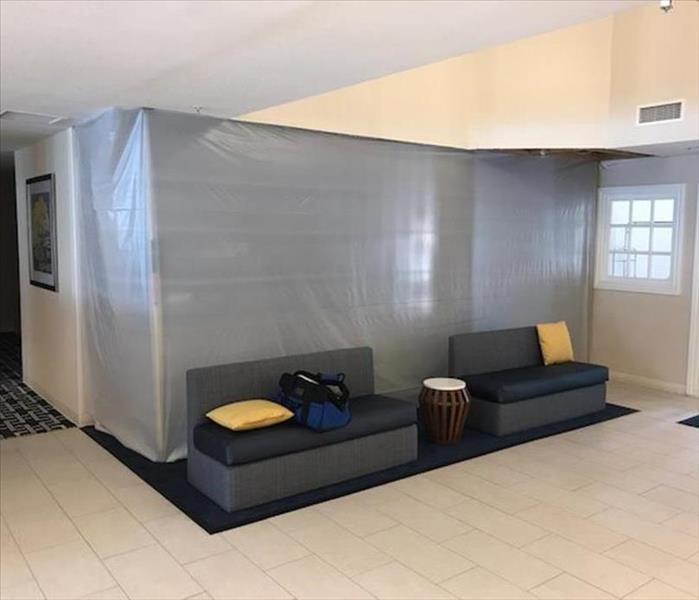 Wayne hotel days before Villanova graduation
Wayne hotel days before Villanova graduation
Business owners face unique challenges dealing with property damage. Missing walls and ceilings, noisy drying equipment, busy crews working in plain sight, and construction related dirt and debris can make for a miserable customer experience.
SERVPRO of The Main Line believes that no business should have to jeopardize their customer experience for property damage. We have over 30 years of experience cleaning up and restoring business. We know how to minimize the disruption and keep you open during a difficult time. That is why we construct beautiful containment barriers around the work area while remediation and repairs can be made out of sight and out of mind.
Picture below shows a Wayne, PA hotel only one week before the Villanova graduation. A sprinkler head burst in the lobby; the ceiling collapsed, custom cabinets were damaged, wallpaper walls destroyed, carpet saturated. The SERVPRO of The Main Line emergency crew arrived within hours and cleaned up the damage then began the drying process. The drying was finished 3 days before guests would begin to flood the hotel. The hotel repair crew began immediately, but problems arose. The wallpaper was out of stock and wouldn’t be available for three weeks. The custom cabinets were on rush but would not be completed for two. Time was an asset the hotel did not have.
Luckily SERVPRO of The Main Line set up a containment barrier that kept the work area out of sight and the lobby clean. While the hotel was not able to use a section of the lobby, the customer experience remained intact and the hotel did not loose any business.
If you’re a business owner in need of emergency cleanup, trust the professionals at SERVPRO of the Main Line to make it "Like it never even happened." while it is currently happening.
Basement flooding prevention tips
5/22/2017 (Permalink)
 Example of poor draining downspout.
Example of poor draining downspout.
As hurricane season approaches many of us will be vulnerable to basement flooding. Basement flooding can be a major disturbance to a family. Loss of use of a part of your home, damage to flooring and walls, damage to personal property, potential of mold growth, and just overall an experience we would avoid if we could.
To begin trying to prevent basement flooding first we must understand why basements flood. Think about when your home was being built. A large hole is dug and the masonry foundation is built inside that hole. The area outside of that foundation wall becomes a trench. This trench is later back filled with dirt. However this dirt is different in composition from what was removed. Typically the soil make up in Southeastern Pennsylvania is a hard clay soil under top soil layer which is hard and compacted. The trench soil is loose, not as compacted, and drains more rapidly. So when water fills this trench in a heavy rainstorm it has only 3 possible directions to go, away from home through hard clay soil, down below the trench through hard clay soil, or into your home though porous masonry walls. The most important step to preventing water damages from rain/flooding is to keep water away from this trench. There are other causes for basements to flood like hydrostatic pressure and sump pump failures but this is the most common cause from our experience.
Below are some tips from the pros that may help you avoid a water damage:
- · Check your gutters and clean them if needed. Clogged gutters cause overflows which lead to water pooling outside the foundation walls. If enough water pools by your foundation, some will most likely enter your basement.
- · Check on your gutter downspouts. If your gutters are clean and operating properly but the water is being discharged to close to your foundation some water will most likely enter your basement. Local home stores sell inexpensive downspout extenders. Use downspout extenders to make sure the water is being discharged away from your foundation and not pooling.
- · Check on your sump pump and pit. Many of us don’t know that our sump pumps aren’t working until it’s too late. Get a 5 gallon bucket of water and fill the pit till the pump kicks on. Make sure it’s working and just like the downspouts, discharging away from your foundation. Also and dirt and debris in the sump pump pit can get sucked into the pump and create a block or shorten the life span and power of your pump. Detach the pump (if possible) and vacuum the pit out with a shop vac to remove any dirt/stones/debris.
Sometimes no matter what we do and what steps we take to prevent it, water will find its way into your home. If that’s the case, we are here to help make it “Like it never even happened.”

 24/7 Emergency Service
24/7 Emergency Service

